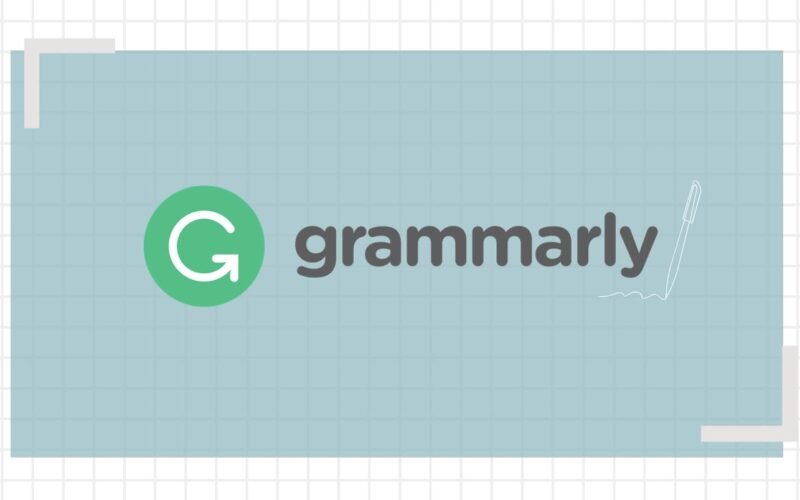Academic writing needs precision, clarity, and a strong grasp of language. Many students and researchers use tools like Grammarly to improve their writing. Grammarly offers tools for grammar and syntax checks, vocabulary improvement, and plagiarism detection.
Table Of Content
- Key Takeaways
- Understanding Grammarly’s Role in Academic Writing
- What Grammarly Offers to Academic Writers
- Basic vs Premium Features for Academic Use
- Integration with Academic Platforms
- The Core Features of Grammarly for Scholarly Work
- How Accurate is Grammarly for Academic Papers?
- Context-Specific Suggestions
- Plagiarism Detection Capabilities
- Is Grammarly Good for Academic Writing: An In-depth Analysis
- Citation and Reference Handling
- Citation Style Support
- Reference Format Recognition
- Using Grammarly Across Different Academic Disciplines
- Impact on Academic Writing Quality
- Improvement in Clarity and Coherence
- Effect on Academic Style and Tone
- Privacy and Data Security Considerations
- Data Protection Policies
- Institutional Compliance
- Cost-Benefit Analysis for Students and Researchers
- Best Practices for Using Grammarly in Academic Writing
- Integration with Writing Workflow
- Avoiding Over-reliance
- Maximizing Tool Effectiveness
- Conclusion
- FAQ
- What is Grammarly and how does it work?
- What are the key features of Grammarly for academic writing?
- Is Grammarly cost-effective for students and researchers?
Grammarly is a powerful tool for academic writing. It has advanced grammar and syntax checks, vocabulary suggestions, and plagiarism detection. This makes it great for students and researchers aiming for top-notch writing.
Key Takeaways
- Grammarly offers a range of features to improve academic writing quality
- Grammarly features include grammar and syntax checks, vocabulary enhancement, and plagiarism detection
- Academic writing tools like Grammarly can help writers refine their work and produce high-quality papers
- Grammarly is suitable for students and researchers working on various types of academic writing projects
- Grammarly’s tools can help writers improve their grammar, syntax, and vocabulary skills
- Grammarly’s plagiarism detection capabilities can help writers ensure the originality of their work
Understanding Grammarly’s Role in Academic Writing
Grammarly is a tool that helps with plagiarism detection and citation management in academic writing. It’s key for writers to keep their work original and credible. Grammarly works with many academic platforms, making writing easier. This lets writers focus on their research and ideas, not on formatting.
Grammarly has basic and premium features for academic writing. Basic features check grammar and spelling. Premium features include plagiarism detection and citation management. These premium tools are great for writers who need more help.
What Grammarly Offers to Academic Writers
Grammarly helps academic writers in many ways. Some key benefits are:
- Improved writing clarity and coherence
- Enhanced grammar and syntax accuracy
- Effective plagiarism detection and citation management
- Seamless integration with academic platforms
Basic vs Premium Features for Academic Use
The basic features of Grammarly are good for general writing. But, the premium features are better for academic writing. Premium features include:
- Advanced plagiarism detection and citation management
- Enhanced grammar and syntax checks
- Improved writing suggestions and recommendations
Integration with Academic Platforms
Grammarly works well with many academic platforms. This makes it easy for writers to use its features. It helps writers focus on their research and ideas, not on formatting.
The Core Features of Grammarly for Scholarly Work
Grammarly is a versatile tool that offers a range of features to enhance scholarly work. It includes grammar and syntax checking, vocabulary enhancement, and readability scores. These features help improve the quality of academic writing, making it more engaging, clear, and concise.
One of the key benefits of using Grammarly for scholarly work is its ability to provide detailed feedback on grammar and syntax. This helps writers to identify and correct errors. It ensures that their work is free from mistakes and easy to understand. Grammarly’s vocabulary enhancement feature also suggests alternative words and phrases to help writers express themselves more effectively.
Grammarly also provides readability scores, which help writers gauge the clarity and coherence of their work. This feature is very useful for academic writers. It helps them ensure that their work is accessible to a wide range of readers. By using Grammarly’s core features, scholars can refine their writing, making it more effective and engaging.
- Advanced grammar and syntax checking
- Vocabulary enhancement suggestions
- Readability scores to gauge clarity and coherence
By leveraging these features, scholars can produce high-quality work that meets the standards of academic writing. Whether you’re a student, researcher, or professor, Grammarly’s core features can help you refine your writing and achieve your goals.
How Accurate is Grammarly for Academic Papers?
Grammarly’s accuracy is key for academic writing. It can spot and fix grammatical mistakes. It also knows technical words, which is vital for top-notch academic papers.
Grammarly is great at finding and fixing grammar and syntax errors. But, it might struggle with technical vocabulary in very specific fields.
Context-Specific Suggestions
Grammarly’s context-specific suggestions are also crucial. Its algorithms offer advice that fits the sentence or paragraph perfectly. It considers tone, style, and who the audience is.
Some important features that help Grammarly’s accuracy include:
- Advanced grammar and syntax checking
- Technical vocabulary recognition
- Context-specific suggestions
Grammarly’s accuracy is a big plus for academic writers. It’s not perfect, but it’s very helpful. It can spot and fix mistakes and offer advice that fits the context. This makes it a must-have for writing top-quality academic papers.
| Feature | Description |
|---|---|
| Grammar and Syntax Checking | Advanced checking for grammatical errors |
| Technical Vocabulary Recognition | Recognition of technical terms and phrases |
| Context-Specific Suggestions | Suggestions tailored to the specific context |
Plagiarism Detection Capabilities
Grammarly’s plagiarism detection is key, offering originality reports to spot plagiarism. This is vital in academic writing to keep research papers and essays credible.
Grammarly’s tool scans your text against a huge database of sources. This includes academic papers, books, and websites. It finds plagiarism and suggests citation management to avoid it.
Grammarly’s plagiarism detection has several important features:
- Checks against a vast database of sources
- Provides originality reports to identify potential instances of plagiarism
- Offers citation management suggestions to help users properly cite their sources
Using Grammarly’s tool ensures your work is original and cited correctly. This is crucial for academic integrity and avoiding plagiarism.
Plagiarism detection is a critical aspect of academic writing, and Grammarly’s tool provides a comprehensive solution to help users maintain the integrity of their work.
| Feature | Description |
|---|---|
| Plagiarism Detection | Checks the user’s text against a vast database of sources to identify instances of plagiarism |
| Originality Reports | Provides users with reports that identify potential instances of plagiarism |
| Citation Management | Offers suggestions to help users properly cite their sources and avoid plagiarism |
Is Grammarly Good for Academic Writing: An In-depth Analysis
Grammarly is a well-known tool for academic writers. It helps improve writing quality with features like grammar checks and vocabulary recognition. It also offers suggestions based on the context.
But, Grammarly has its limits. It can’t fully grasp the complexities of human language, leading to sometimes wrong suggestions. When compared to tools like ProWritingAid and Ginger, each has its own strengths and weaknesses.
Using Grammarly for academic writing has several benefits. These include:
- Improved grammar and syntax accuracy
- Enhanced technical vocabulary recognition
- Context-specific suggestions for improvement
Grammarly is known for its easy-to-use interface and wide range of features. Yet, it’s important to know its limitations. Using it alongside other tools and resources can help achieve the best academic writing.
| Tool | Features | Pricing |
|---|---|---|
| Grammarly | Grammar and syntax checks, technical vocabulary recognition, context-specific suggestions | $11.66/month |
| ProWritingAid | Grammar and syntax checks, technical vocabulary recognition, context-specific suggestions, writing reports | $20/month |
| Ginger | Grammar and syntax checks, technical vocabulary recognition, context-specific suggestions, translation tools | $20.97/month |
Citation and Reference Handling
Keeping academic work honest is key. Grammarly helps with this by supporting many citation styles and formats. It’s a big help for students and researchers.
Grammarly works with MLA, APA, and Chicago styles. This makes it easy to format citations and references. It also checks references for errors, keeping work accurate and consistent.
Citation Style Support
Grammarly supports:
- MLA style: used in humanities and liberal arts
- APA style: used in social sciences and education
- Chicago style: used in history and philosophy
Reference Format Recognition
Grammarly can spot and fix mistakes in:
- Book titles and authors
- Journal article titles and authors
- Website URLs and publication dates
Using Grammarly’s features helps keep work properly cited and referenced. This keeps academic integrity and avoids plagiarism.
| Citation Style | Description |
|---|---|
| MLA | Modern Language Association style, commonly used in humanities and liberal arts |
| APA | American Psychological Association style, commonly used in social sciences and education |
| Chicago | Chicago Manual of Style, commonly used in history and philosophy |
Using Grammarly Across Different Academic Disciplines
Grammarly is great for scholars in many fields because it fits well with subject-specific vocabulary and academic writing conventions. It helps researchers make their writing clear and easy to follow.
Using Grammarly in different fields has many benefits:
- It makes sure technical words are used correctly.
- It helps follow academic writing conventions better.
- It makes handling citations and references easier.
In engineering, Grammarly helps writers avoid mistakes and follow rules. In the humanities, it helps scholars make their arguments clear and interesting to many people.
Grammarly lets researchers focus on their ideas, not on the details of subject-specific vocabulary and formatting. This way, they can create top-notch research that adds value to their field.
Grammarly is a key tool for scholars because it supports interdisciplinary use. It meets the unique needs of different fields, helping scholars produce outstanding research and writing.
| Academic Discipline | Benefits of Using Grammarly |
|---|---|
| Engineering | Improved technical vocabulary recognition, enhanced accuracy |
| Humanities | Refined argumentation, engaging and accessible writing |
| Sciences | Streamlined citation and reference handling, adherence to academic writing conventions |
Impact on Academic Writing Quality
Grammarly greatly improves the quality of academic writing, focusing on clarity and coherence. It helps writers meet academic standards by making their work clear and structured. Grammarly’s advanced algorithms analyze the text and offer suggestions for better writing.
In terms of clarity, Grammarly makes it easier to share ideas clearly. This is key in academic writing, where complex ideas must be simple and straightforward. With Grammarly, writers avoid confusion, making their arguments easier to grasp.
Improvement in Clarity and Coherence
Grammarly also boosts coherence by organizing ideas logically. It suggests better sentence structures and paragraph organization. This ensures writing is easy to follow and free from errors.
Effect on Academic Style and Tone
Grammarly also affects academic style and tone. It helps writers use a formal and academic tone, crucial for academic writing. This includes using technical terms and keeping a neutral tone.
Overall, Grammarly enhances academic writing quality, focusing on clarity, coherence, and style. It helps writers produce high-quality work that meets academic standards.
Privacy and Data Security Considerations
Using Grammarly can raise questions about data security and privacy. Grammarly takes these concerns seriously and has strong measures to protect user data. Their policies aim to keep user information safe, giving writers peace of mind.
Grammarly’s dedication to data security is clear in its strict privacy policies. It encrypts all data sent between users’ devices and its servers. This makes it hard for others to get to sensitive info. Also, Grammarly follows rules like the General Data Protection Regulation (GDPR), showing its strong commitment to data protection.
Data Protection Policies
Grammarly’s data protection policies are based on transparency, accountability, and user control. The company clearly explains how it collects and uses data. This lets users make smart choices about their data. Users can also access, correct, and delete their personal data, giving them control over their info.
Institutional Compliance
Grammarly’s commitment to data security is shown by its adherence to rules. It works with schools and organizations to make sure its services are safe. This makes Grammarly a reliable tool for writing, and institutions can trust it with their users’ data.
In summary, Grammarly’s focus on data security and privacy policies creates a safe writing space. Its institutional compliance with rules shows it’s serious about protecting user data. This makes Grammarly a great choice for writers who care about their privacy and security.
Cost-Benefit Analysis for Students and Researchers
Students and researchers need to think about Grammarly’s cost against their budgets. Grammarly has different plans with various features and prices. It’s important to look at the pricing and how it fits into their budgets.
Grammarly can make writing better, cut down on mistakes, and boost grades. By getting a Grammarly subscription, users can save time and effort. This is because the tool makes writing easier and lessens the need for lots of editing.
When looking at Grammarly’s cost-benefit, consider these points:
- Subscription plans: Grammarly has monthly and yearly plans, with prices based on the service level.
- Academic budgets: Students and researchers should check if they can afford a Grammarly subscription.
- Cost-effectiveness: Think about how much Grammarly improves writing, cuts down on errors, and boosts grades against the subscription cost.
By looking at these factors, students and researchers can decide if Grammarly is worth the cost. It helps them see if the tool is a good investment for their studies.
Best Practices for Using Grammarly in Academic Writing
Using tools like Grammarly can really help with academic writing. To make the most of Grammarly, it’s key to know how to use it well. This means setting clear goals and establishing a routine for its use.
Integration with Writing Workflow
Start using Grammarly from the first draft to the final edit. This way, your writing will be error-free and polished. Here are some tips:
- Use Grammarly’s plagiarism detection feature to check for originality
- Follow the tool’s suggestions to improve clarity and coherence
- Make a routine for regular checks and edits
Avoiding Over-reliance
Grammarly is powerful, but don’t rely on it too much. Use it as a supplement to your own writing skills. This way, you’ll develop your own writing abilities and not just rely on technology.
Maximizing Tool Effectiveness
To get the most from Grammarly, understand its capabilities and limitations. Learn how to use its features, like the grammar and spell checker. This will help you improve your writing quality.
Conclusion
Grammarly is a powerful tool that can greatly improve your academic writing. It offers features like grammar correction, vocabulary improvement, and plagiarism detection. These tools are valuable for students, researchers, and professionals.
Grammarly is not perfect for all writing needs. But, it can make your writing clearer and more impactful. It’s great for enhancing the quality of your scholarly work.
Using Grammarly as a tool in your writing process is key. It should be used alongside your own critical thinking and expertise. This way, you can create content that is both grammatically correct and conveys your ideas well.
Remember, don’t rely too much on Grammarly. Keep your own voice and integrity in your writing. This balance will help you produce top-notch academic content.
Grammarly is a strong writing assistant for academic writing. It can help you reach your scholarly goals. By using it wisely, you can improve your writing skills and make a significant impact in your studies.
FAQ
What is Grammarly and how does it work?
Grammarly is a tool that uses AI to help improve your writing. It checks for grammar, spelling, and style errors. It works with many platforms, giving feedback and suggestions to make your writing better.
What are the key features of Grammarly for academic writing?
Grammarly has features for academic writing like plagiarism detection and citation management. It also checks grammar, syntax, and vocabulary. These help make your writing clear and academic.
Is Grammarly cost-effective for students and researchers?
Whether Grammarly is worth it depends on your needs and budget. The free version is good for basics, but the premium offers more. It’s worth it if you need advanced features like plagiarism detection.








No Comment! Be the first one.